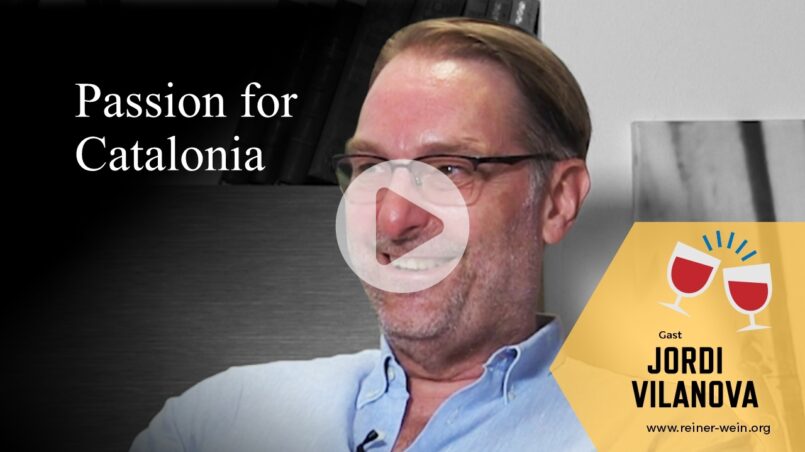Passion for Catalonia – Jordi Vilanova

For his first interview in English, host Michael Winkler invited political activist Jordi Vilanova, who is a member of the National Secretariat of Assemblea Nacional Catalana (ANC). Vlianova sees himself as a West European, as he lived all over that part of Europe. People nowadays have several identities; for many it’s not easy to cope with the contradictions between these identities.
Brought up in London, Vilanova had difficulties in explaining the Catalonian situation to his friends, as most of them had no experience apart from holidays or the Olympic Games in Barcelona. Coming back to Spain meant to leave behind many friendships in England; but he had to experience how life in Catalonia is – and although he had a job offer in London waiting for him, he never went back.
Like London, Barcelona, where he is living now, also changed alot in recent years. Catalan society always has been a liberal and open society, so Multiculturalism fits in very well.
His father got involved in Spanish politics very fast, he even founded a (rather unsuccessful) political party, because back then the idea of independence was not very popular. As his father died at a very young age, Vilanova wanted to carry on the legacy of his father. He then describes a bit of his family history, starting before the Spanish civil war; a history, that also influenced him in becoming a political activist.
In 2006 the Spanish socialist party opened a window of opportunity for Catalonia to establish a new statute to gain more freedom from the government in Madrid. Spanish Centralists fought hard against that idea, because they are – up until today – afraid of certain Spanish regions becoming too independent. So they took the Spanish constitution to the constitutional court, a highly politicized body that is filled with many Unionists; the court changed the statute in its important articles, though it was already approved by a Catalonian referendum and had followed the usual legal process according to Spanish law. Due too this – in the eyes of many Catalonians – great injustice, many federalists/autonomists turned into supporters of Catalonian independence. In 2012 more than one million people took to the streets to show their support for the independence movement, which was also supported by almost all Catalonian parties.
On October 1st 2017 the Catalonian referendum for independence took place, but it was disrupted by Spanish police forces and paramilitary units attacking people who simply wanted cast a vote.
The reasons why many Catalans support independence are less connected to economics (like paying less in taxes), but rather because people are fed up with being denied freedom, fairness and justice by the central powers in Madrid. Those powers called the referendum a coup d’etat, not realizing, that they started the whole procedure in he first place, as Vilanova explained.
The role of Jordi Sanchez and the ANC, his sentencing to prison just for calling for a demonstration, Carles Puigdemont and the offer of mediation by the European Union and the situation in Ukraine in comparison to the Spanish civil war are further topics of this interview.
Credits
| Image | Title | Author | License |
|---|---|---|---|
 |
RW – Jordi Vilanova-YOUTUBE | Wolfgang Müller | CC BY SA 4.0 |
